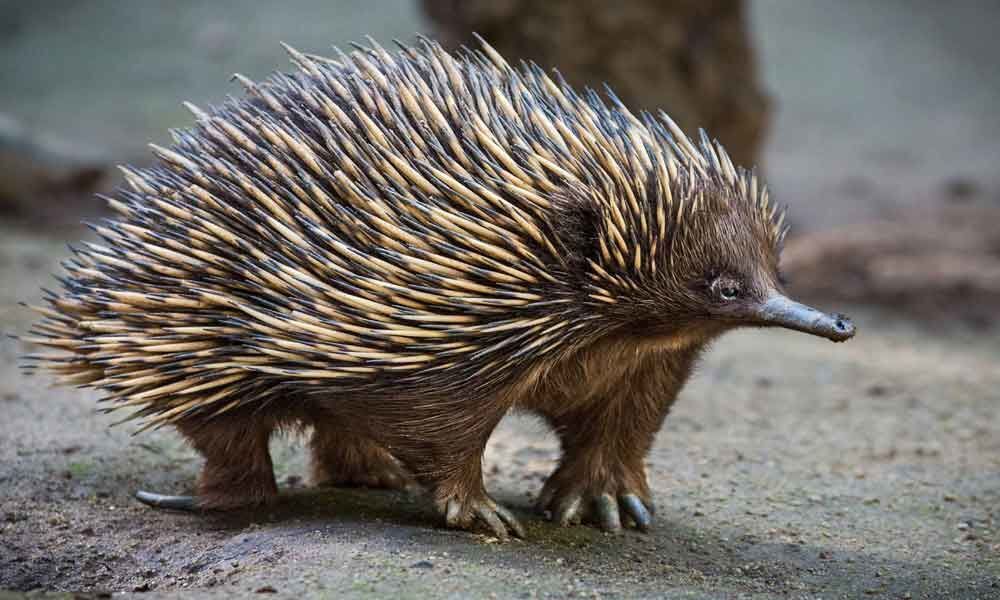CCMB discovers source of novel anti-microbial
 CCMB discovers source of novel anti-microbial
CCMB discovers source of novel anti-microbialWith antibiotics being used indiscriminately animal husbandry to maintain healthy livestock and as growth promoters, this has also led to the rise of multiple antibiotic-resistant bacterial strains.
With antibiotics being used indiscriminately animal husbandry to maintain healthy livestock and as growth promoters, this has also led to the rise of multiple antibiotic-resistant bacterial strains. Mastitis, an infection of the mammary gland of lactating dairy animals, is one such challenge where the number of effective antibiotics is on a decline
Hyderabad: The Centre for Cellular & Molecular Biology (CCMB) scientists have found that the milk of these animals contains a novel anti-microbial protein (AMP), important to keep their young ones safe from possible infections.
Echidna (also known as spiny anteaters) is unique egg-laying mammals found only in Australia and New Guinea unlike mammals which directly give birth to their young ones. Their young ones hatch out of eggs at a very early stage of development and depend completely on their mothers' milk.
But the mammary glands of the female Echidna is devoid of nipples. So, in contrast to mammals with placenta where their young suck milk directly from nipples, the young of these egg-laying mammals lick milk from the body surface of their mothers. This also becomes a potential source of many micro-organisms entering the young ones' bodies.
A research team led by Dr Satish Kumar at CCMB has shown that this protein creates punctures in the cell membranes of multiple bacterial species and so in future can be used as alternatives to the present antibiotics. They have also found out ways to produce the AMP in large quantities using E. coli – an easy to use a system for life scientists and industry.
"Studies such as these give us novel approaches to fighting infectious diseases by taking clues from nature. They are the best way forward in this emerging scenario of increased infectious disease burden and resistance to current treatments" said Dr Rakesh Mishra, Director, CCMB.
With antibiotics being used indiscriminately animal husbandry to maintain healthy livestock and as growth promoters, this has also led to the rise of multiple antibiotic-resistant bacterial strains. Mastitis, an infection of the mammary gland of lactating dairy animals, is one such challenge where the number of effective antibiotics is on a decline.
In some extreme cases, mastitis causes permanent damage to the mammary tissue. Dr Kumar's team has been able to show that the AMP from Echidna is potent against mastitis-causing bacteria. This piece of research has been recently published in Biochimica et Biophysica Acta - Biomembranes








